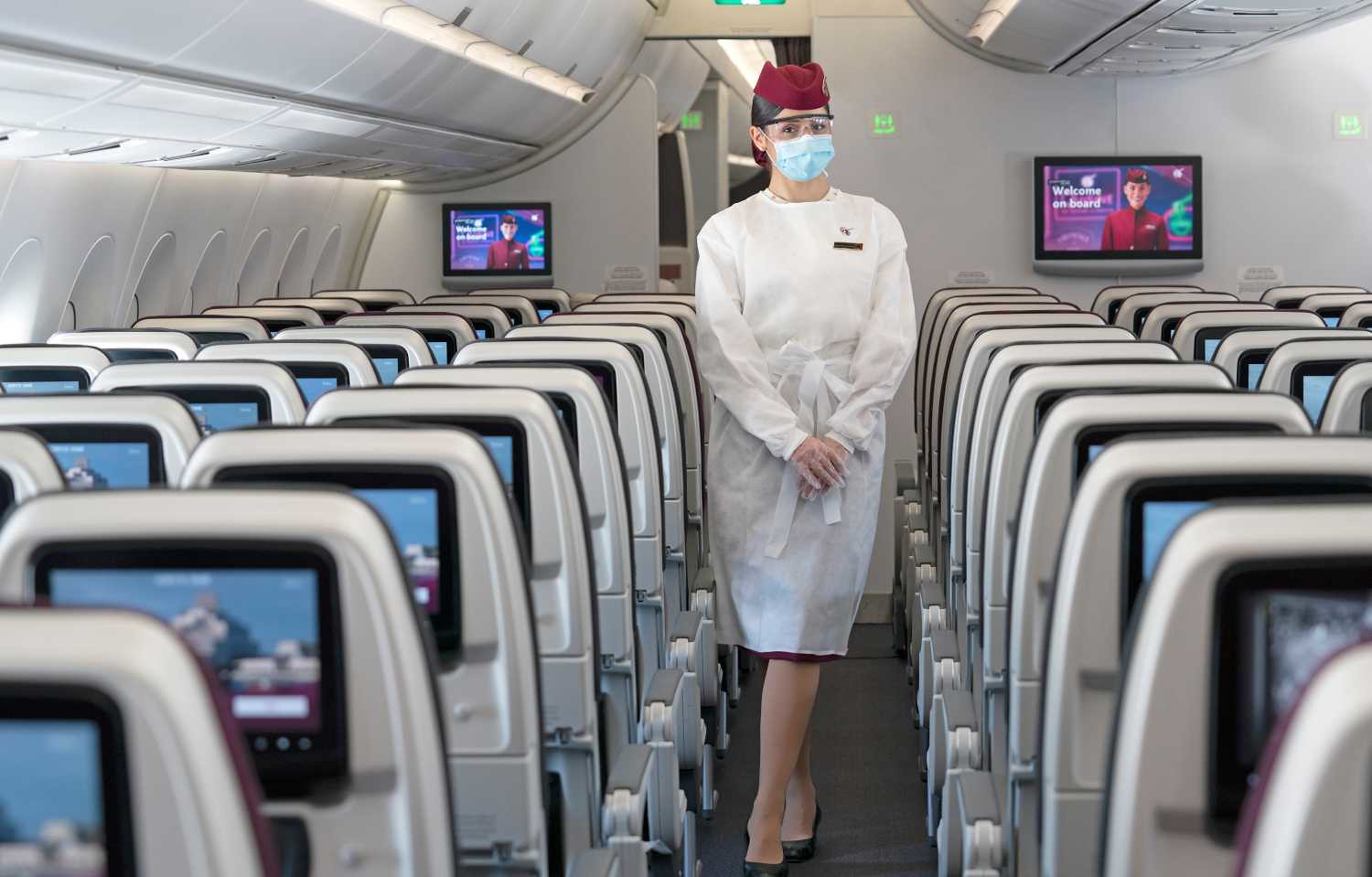
Qatar Airways has quietly become one of the very few airlines that can boast of having 100 per cent of operating cabin crew vaccinated against COVID-19 and it did so, a spokesperson says, without ever having to issue a formal mandate for employees to get vaccinated or get fired.
The news that Qatar Airways has achieved what few other airlines have managed comes at a time that corporations are weighing up the benefits of issuing vaccine mandates. The pressure to decide has become even greater after United Airlines became the first U.S. carrier to announce compulsory employee vaccination.
That announcement was quickly followed by similar vaccine mandates from Frontier and Hawaiian Airlines but the likes of American Airlines and Southwest are standing firm in their decision to leave vaccination as an individual choice. Delta Air Lines is likely to issue a mandate as soon as a vaccine gets full FDA approval.
There are obvious ethical and legal questions to be considered before issuing a vaccine mandate and so it’s no surprise that some airlines aren’t immediately following in the lead of United. Eventually, however, it might transpire that duty of care obligations dictate mandatory vaccination (an issue that Alaska Airlines is considering) but we’re not quite there yet.
So how did Qatar Airways achieve 100 per cent crew vaccination without threatening dismissal against vaccine-hesitant workers?
Unlike the United States, cabin crew in Qatar weren’t immediately prioritised for the vaccine and supply issues meant that Qatar hasn’t had a surplus of vaccines that are going to waste either. But when crew did become eligible, they had a simple choice – get vaccinated or have an invasive COVID-19 test every few days to prove your negative status.
It appears that the incentive of avoiding regular testing, alongside education and incentives, was enough to convince enough cabin crew to get vaccinated without the need for a mandate.
Qatar Airways’ employee demographic may also play into vaccine uptake but the fact that Qatar has only approved the Pfizer and Moderna vaccines could also have improved employee trust in the vaccination programme.
Rival airline Etihad Airlines was the first airline in the world in February to achieve full vaccination amongst operating cabin crew and pilots and it did so with the Chinese manufactured Sinopharm vaccine. Some crew, however, refused to take the vaccine and were simply placed on administrative leave.
Despite its early successes, Etihad says 92 per cent of staff based in the UAE have chosen to be vaccinated. The Abu Dhabi-based airline doesn’t yet appear to be under any pressure to extend its vaccine mandate beyond flight crew.
In comparison, Delta is under pressure to issue a vaccine mandate, although through voluntary measures alone around 73 per cent of eligible U.S.-based employees are fully vaccinated against COVID-19.
So how could this play out over the coming weeks and months? Frontier has also opted for a hybrid model that allows employees to choose between vaccination or regular testing. It’s a policy that other airlines are likely to follow, while also limiting what unvaccinated employees can do – such as removing flight benefits or barring crew from working certain flights.
Related
British Airways Cabin Crew Refusing to Disclose Vaccination Status to Avoid Hong Kong IsolationIn "Airline News"
Qatar Airways Operates First Ever Fully Vaccinated Flight – That’s Crew and PassengersIn "Airline News"
United Airlines Flight Attendant Union Says Vaccine Exemptions are a Private MatterIn "Airline News"
Mateusz Maszczynski honed his skills as an international flight attendant at the most prominent airline in the Middle East and has been flying ever since... most recently for a well known European airline. Matt is passionate about the aviation industry and has become an expert in passenger experience and human-centric stories. Always keeping an ear close to the ground, Matt's industry insights, analysis and news coverage is frequently relied upon by some of the biggest names in journalism.







